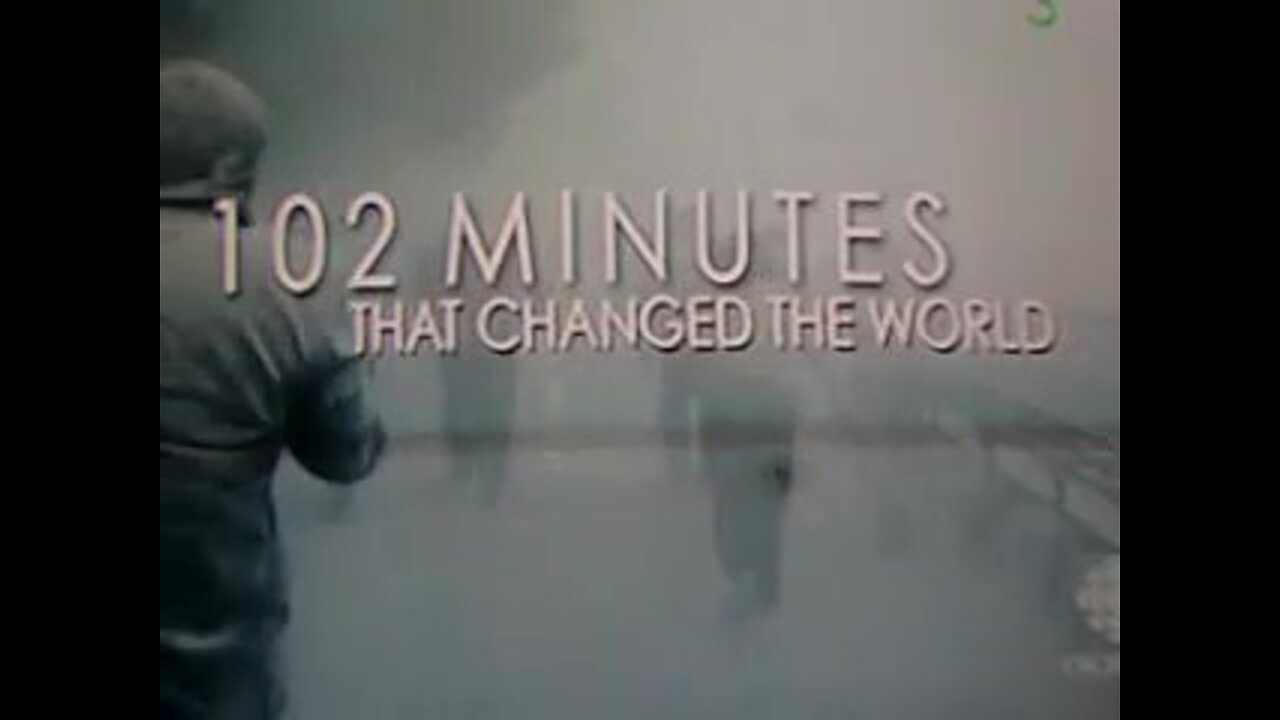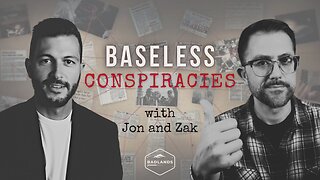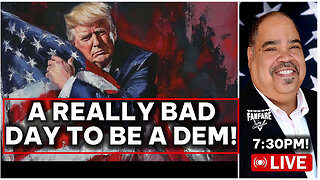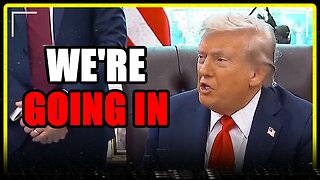Premium Only Content

9/11: 102 Minutes That Changed the World
102 minutes. It is the time which elapsed between the moment when a first plane struck the first of the two twin towers and the moment when the last collapsed in an upstream of rubble, leaving behind only the tortured silhouettes of the two towers. metal structures, the mutilated bodies of several thousand victims, a bloodless neighborhood, a traumatized country.
It took a generation (the one now on the university benches or entering the job market without knowing anything about September 11 other than archival footage) to fully measure the impact and the multiple legacy of these attacks. Without “ 9/11 », No Iraq, no Daesh. Maybe not Obama in reaction to the Bush period, so no Tea Party, no Trump …
Because history is woven in arantele, each anchor point is linked to another, and to yet another. Among them, certain events are so decisive that they constitute fractures that are reshaping the world.
On the eve of September 11, 2001, George W. Bush was the president who had snatched his election to the Supreme Court and whose “Bushisms” were universally mocked. He had announced a “humble foreign policy” and intended to stick to it. Its biggest problem during the summer of 2001 was in fact the interception by two Chinese J-8 planes of an American EP-3 reconnaissance plane, grounded on the island of Hainan, and which Beijing was dismantling for extract technology and sensitive data. It is then the most serious diplomatic crisis between the two countries: the enemy number 1 of the United States is then in the west, on the other side of the Pacific.
September 11 upsets the order of things.
This president without much legitimacy will inherit a record approval rating, and certain actors will then take on a completely different stature, from Rudy Giuliani to the neoconservatives who created the disastrous intervention in Iraq.
On American soil, while there will ultimately be no more al-Qaeda attacks, collective paranoia is fueled by a series of anthrax attacks – they will kill five people. The nature of the threat facing the country is assessed daily with a color code (green, blue, yellow, orange, red) and news channels dissert for months on the caulking of windows in case of chemical attack, on the vulnerability of drinking water reservoirs to bacteriological attacks or that of shopping centers to radiological bombs.
The enemy becomes the Other, and everything that is dissident becomes the enemy of the nation. The effects are quickly felt. For the first time in its history, the United States is creating a Department of Homeland Security. Exceptional measures are multiplying: the Patriot Act and the notion of enemy combatant, which allows extrajudicial detentions, the use of secret CIA prisons and the practice of torture. As the emergency normalizes, the tolerance of American citizens towards electronic surveillance (as evidenced by the attitude of public opinion towards Edward Snowden) leads to the perpetuation of the state of ‘exception. The United States is at perpetual war – that of the “war on terror” – and the complex
military-industrialist in need of vocation after the end of the cold war operates a very lucrative turn towards security.
At the international level, the American vision of a world of risks, freed from any moral responsibility, ends up contaminating the rest of the globe by capillarity. By financing the fight against terrorism and by outsourcing its borders far from its territory, the United States is exporting a certain vision of security at the expense of international cooperation and institutions. Internally, with the advent of non-stop news channels, over-information is gradually leading to disinformation. Disastrous foreign policy decisions accelerate the erosion of the legitimacy of political institutions and the proliferation of conspiracy theories.
The security obsession inherited from September 11, the philosopher Giorgio Agamben would say, shapes the contemporary mutation of the democratic model, its erosion and its slide towards illiberalism. With the slow drift of the liberal world, the international system is therefore being recomposed around security rather than democratic values, in a more unstable context because the United States itself has abandoned the Pax Americana.
In doing so, the pandemic world inherited the tools of September 11 coupled with contemporary technologies: a universe of surveillance, control, opening and rapid closure of borders. A world polarized in all its strata, defined by the Bush adage: “You are with us or against us. A world where bodies now carry borders – from biometrics to health passports.
21 years ago, 102 minutes changed our world.
-
 LIVE
LIVE
Badlands Media
9 hours agoBaseless Conspiracies Ep. 147
22,508 watching -
 LIVE
LIVE
Drew Hernandez
5 hours agoISRAEL BOMBS GAZA HOSPITAL ON LIVE TV KILLING AT LEAST 20 INCLUDING JOURNALISTS & CIVILIANS
678 watching -
 2:55:23
2:55:23
TimcastIRL
4 hours agoTrump Orders Specialized National Guard Units To Combat Crime In Cities, Dems Furious | Timcast IRL
171K112 -
 LIVE
LIVE
SpartakusLIVE
6 hours ago#1 Rocket CHAMPION of Verdansk wields UNSTOPPABLE new META
960 watching -
 2:55:11
2:55:11
Barry Cunningham
6 hours agoPRESIDENT TRUMP MADE TODAY A VERY BAD DAY TO BE A DEMOCRAT!
77.8K48 -
 1:15:29
1:15:29
Flyover Conservatives
23 hours agoFrom Cool to Cringe: How Democrats Lost America’s Ear | FOC Show
32.4K4 -
 8:19
8:19
MattMorseTV
9 hours ago $0.26 earnedTrump is ACTUALLY DOING IT.
21.5K33 -

ZWOGs
12 hours ago🔴LIVE IN 1440p! - Tarkov w/ Casey & crgoodw1n, Kingdom Come Deliverance, & More - Come Hang Out!
18K5 -
 2:30:56
2:30:56
We Like Shooting
16 hours ago $0.03 earnedWe Like Shooting 625 (Gun Podcast)
13K1 -
 1:45:02
1:45:02
Glenn Greenwald
7 hours agoIsrael Slaughters More Journalists, Hiding War Crimes; Trump's Unconstitutional Flag Burning Ban; Glenn Takes Your Questions | SYSTEM UPDATE #504
113K139